Scientist Profiles
The stories of the people behind the science
Scientists come from all different backgrounds, experiences, cultures, and communities. In fact, teams thrive with diverse perspectives. Below are profiles of some of the scientists that collected the data for or worked on the TrEnCh-Ed visualizations. Too many undergraduate researchers to list here were essential in collecting the data and conducting the science.
Bryan Briones Ortiz worked to build several TrEnCh-Ed visualizations.
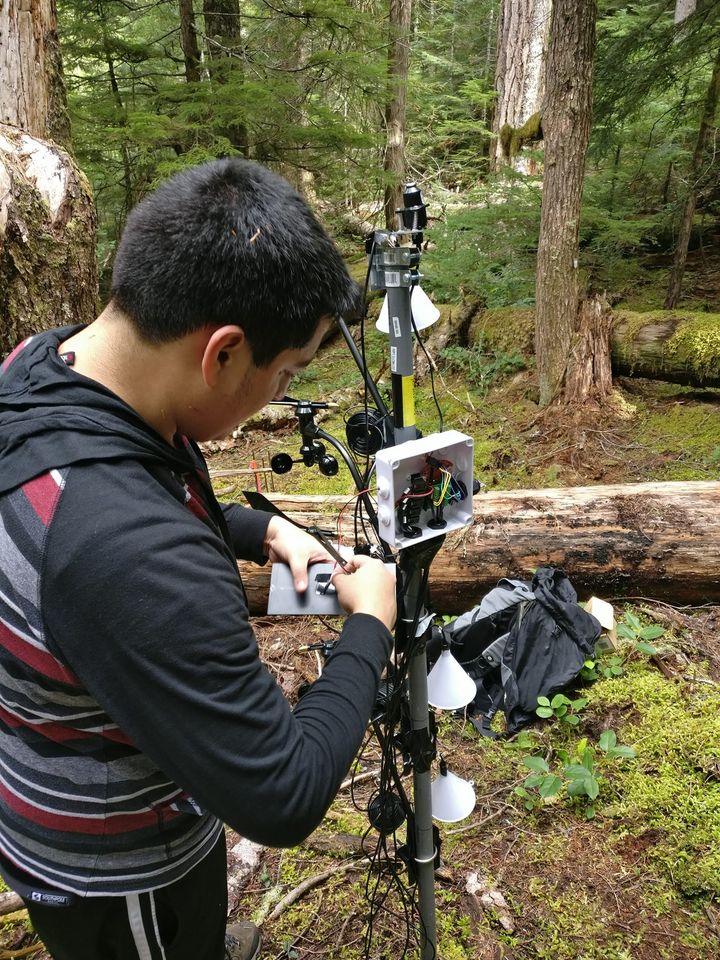
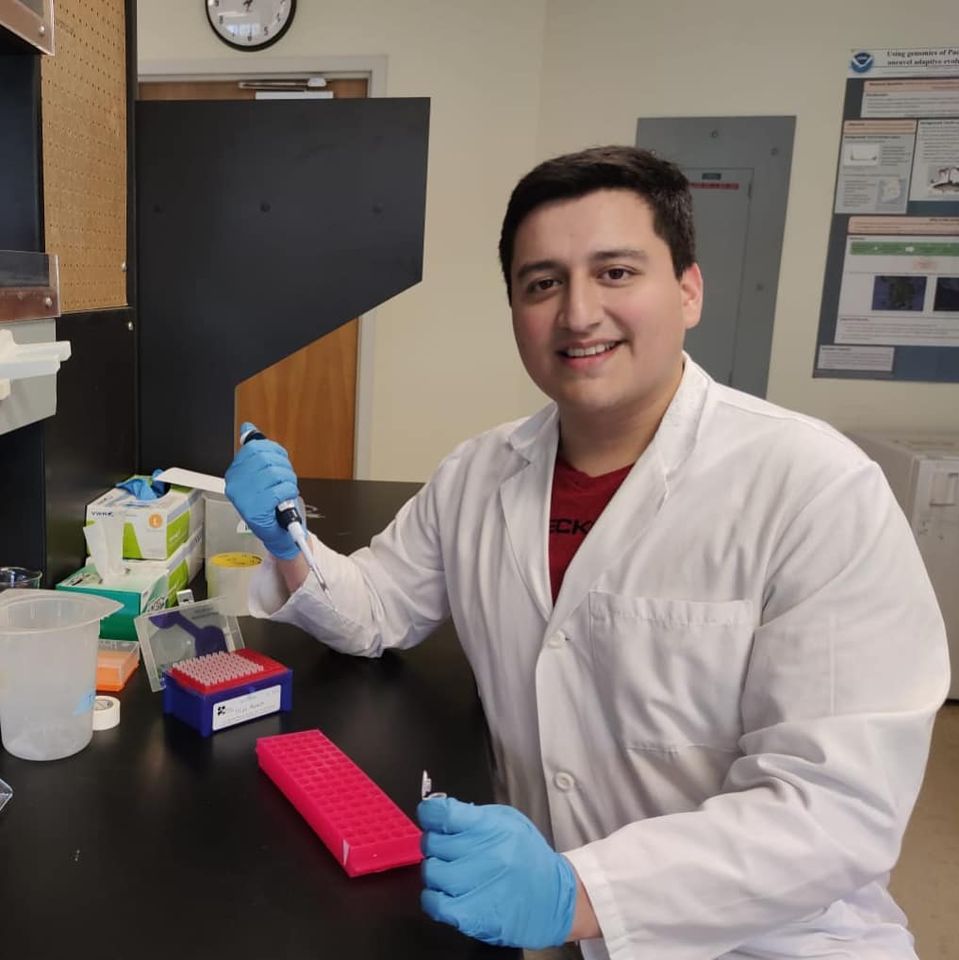
- Introduction: Originally from Ecuador, I arrived in Seattle in 2013 to pursue my bachelor’s degree at the University of Washington. It was during this time that I was initially exposed to research and the natural sciences, ultimately double majoring in Ecology, Evolution, and Conservation Biology; and Aquatic and Fishery Sciences, with a minor in Marine Biology. I participated in multiple ecological projects assimilating various research approaches, including assisting with Dr. Buckley’s study on insect response to climate change, where my research experience in ecology truly commenced; collaborating with a penguin research lab, where I explored my curiosity about conservation; and lastly developing more independent studies on a variety of sea creatures, like nudibranchs, halibut, and ghost shrimp, that made my passion for marine science grow even stronger. I am currently a graduate student in the School of Aquatic and Fishery Sciences at the UW, where I am learning very useful genetics skills to add to my knowledge toolbox. My graduate research aims to link the genetic population structure and genetic basis of key trait variation in Zostera marina, a seagrass species and indispensable ecosystem engineer, to improve coastal conservation efforts in the State of Washington.
- Favorite part of science: My favorite part of science is wowing myself with the findings of the publications that I, like all scientists, am constantly reading. I also enjoy showing and discussing my research, as well learning about other people’s works in interactive events, such as seminars. In general, I am just a fan of science communication and knowledge sharing.
- Mentor/Program of importance in your life: I visited the Friday Harbor Laboratories in the San Juan Islands, WA for the first time during a weekend fieldtrip for my introductory biology class in 2014. Though biology and marine life have always piqued my interest, I had never really been exposed to actual marine science. It was during this trip that I could not only observe the diverse marine life of the region, but also learn about very many aquatic research projects, their findings, the researchers, the facilities and equipment available, and much more that, coupled with my own research experience, ultimately convinced me to pursue a career as an ecologist with a focus on marine conservation.
- Favorite hobby/activity: Entomology is another field of biology in which I am interested. I conducted a small study on zombees (bees infected by parasitic flies) in 2015 and thoroughly enjoyed my general entomology class at the UW. I often find myself staring at bugs sitting or crawling on things or flying nearby, which helps me to take a break from the formalities of science and to just appreciate the wonders and beauty of nature around me.
Lauren Buckley leads the TrEnCh project and worked on the data collection, modelling, or analysis for the Energy Budgets, Robomussels, Butterfly Museum Specimens, and Grasshopper Resurvey visualizations.
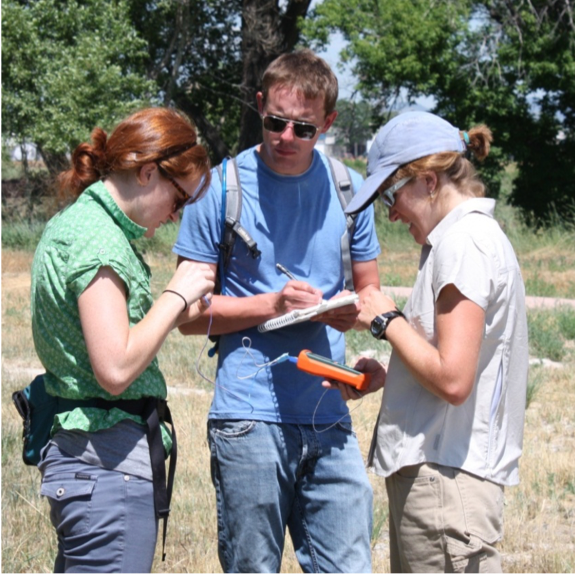
- Introduction: I’m a biology professor at the University of Washington. I started out studying engineering but found that I was more interested in how animals respond to their environment than in how metals bend under force (which was what my engineering courses entailed at the time. But engineering, for example developing alternative energy technologies, is an awesome way to help address climate change). My parents convinced me that continuing to study math would help me as a biologist and they were right! My research combines mathematical models with laboratory and field observations to improve predictions of how animals respond ecologically and evolve in response to climate change. I love exploring Colorado mountains, repeating historic studies to see how insects have responded to climate change.
- Favorite part of science: My favorite is making discoveries about how organisms are responding to climate change. Every time I make a new plot of data it’s a potentially interesting new discovery. The visualizations on this website aim to enable you to participate in the discovery process.
- Overcoming challenges: It’s sometimes a challenge to present my ideas in a way that they are heard. One early example was a grade school geography bee. On the practice day, the boys I was matched up against in the first chairs would raise their hands to answer the questions before they were even asked. I thought it was stupid to raise hands so early and that it shouldn’t be allowed so I ended up not answering any questions. Afterward, my teacher took me aside and told me that my team was counting on me to answer the questions even if I didn’t like how the boys were playing the game. She also said that I was just as likely to be able to answer correctly. During the bee, I instantly raised my hand and answered the questions and I’ve been gradually learning to raise my hand and speak up since.
- Mentor/Program of importance in your life: I had the opportunity to spend the summer at the Rocky Mountain Biological Laboratory (RMBL) in the National Science Foundation’s Research Experience for Undergraduates program. It was amazing to live in a rickety shack in an abandoned mining town at the base of a beautiful mountain, surrounded by other scientists excited to study how organisms interact with their environment. In addition to my independent project, many researchers welcomed me to spend some time assisting their varied projects. I was hooked once I saw how much they all enjoyed their research. Check out the RMBL phenology app to learn more about the amazing place!
- Favorite hobby/activity: My two young kids are working on their insect catching skills to help in the field. Their often challenging questions about how things work remind me of how fun it is to be a scientist.
Heidi MacLean led the science for the Butterfly Museum Specimens visualization.
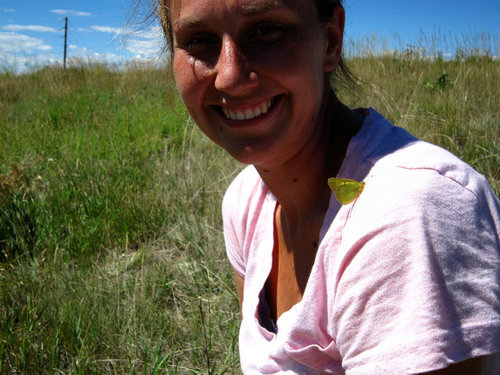
- Introduction: I am an early career scientist with a passion for research and education. I became obsessed with temperature and how it directly and indirectly influences performance in my MSc at the College of William and Mary. It is a theme that ran through my PhD at UNC and my postdocs in Aarhus, Denmark. I met my husband through heated discussions about thermal performance. Now I balance my time between research and our two small children.
- Favorite part of science: My favorite part of science is the opportunity to satisfy curiosities. Unlike other areas of study or jobs I have, science offers the opportunity to both question something about the world around you and figure out a way to get some answers.
- Overcoming challenges: In the beginning of my senior year of high school, my older sister was diagnosed with an aggressive brain tumor. She was given six months but through various treatments and a collaboration with an amazing researcher at UCLA, she survived almost two years. I was in my third semester at the University of Redlands when she died. Up to that point, I had been taking a broad range of classes to fulfill the universities liberal arts education requirements. In the semester following my sister’s death, I took a statistics course and a biology course. I was hooked on both! The topics offered something that my politics, language, and literature courses had not been able to- explanations! I switched my major immediately. I devoted all of my time to research and taking three biology courses at a time. It was through the study of biology that I got through my loss.
- Mentor/Program of importance in your life: In my masters’ I had the amazing opportunity to work with George Gilchrist. He nurtured my curiosity and introduced me to thermal performance curves. Anyone who had the opportunity to work with George will tell you he was an amazing mentor. George and I met weekly and talked about all sorts of things. We discussed statics, programming, science, life, philosophy, and scotch whisky. When I was finishing my degree, he encouraged me to consider a PhD. He introduced me to Lauren Buckley and Joel Kingsolver and pointed out how much our interests aligned. Without George, I would not be where I am today.
- Favorite hobby/activity: Hiking, or in a country as flat as Denmark I will say walking, is one thing that really provides balance and inspiration to my science. No matter where we are in the world, it is so much fun to get out on a trail and look at the plants and animals. It is so cool to see the similarities and differences between fauna and flora in Europe and the US. Especially when working on spring tails and fruit flies, the ability to get away from a bench and contemplate the natural environment is priceless.
César Nufio led the science for the Grasshopper Resurvey visualization. We profile him here.
Meera Lee Sethi wrote the TrEnCh-Ed text.
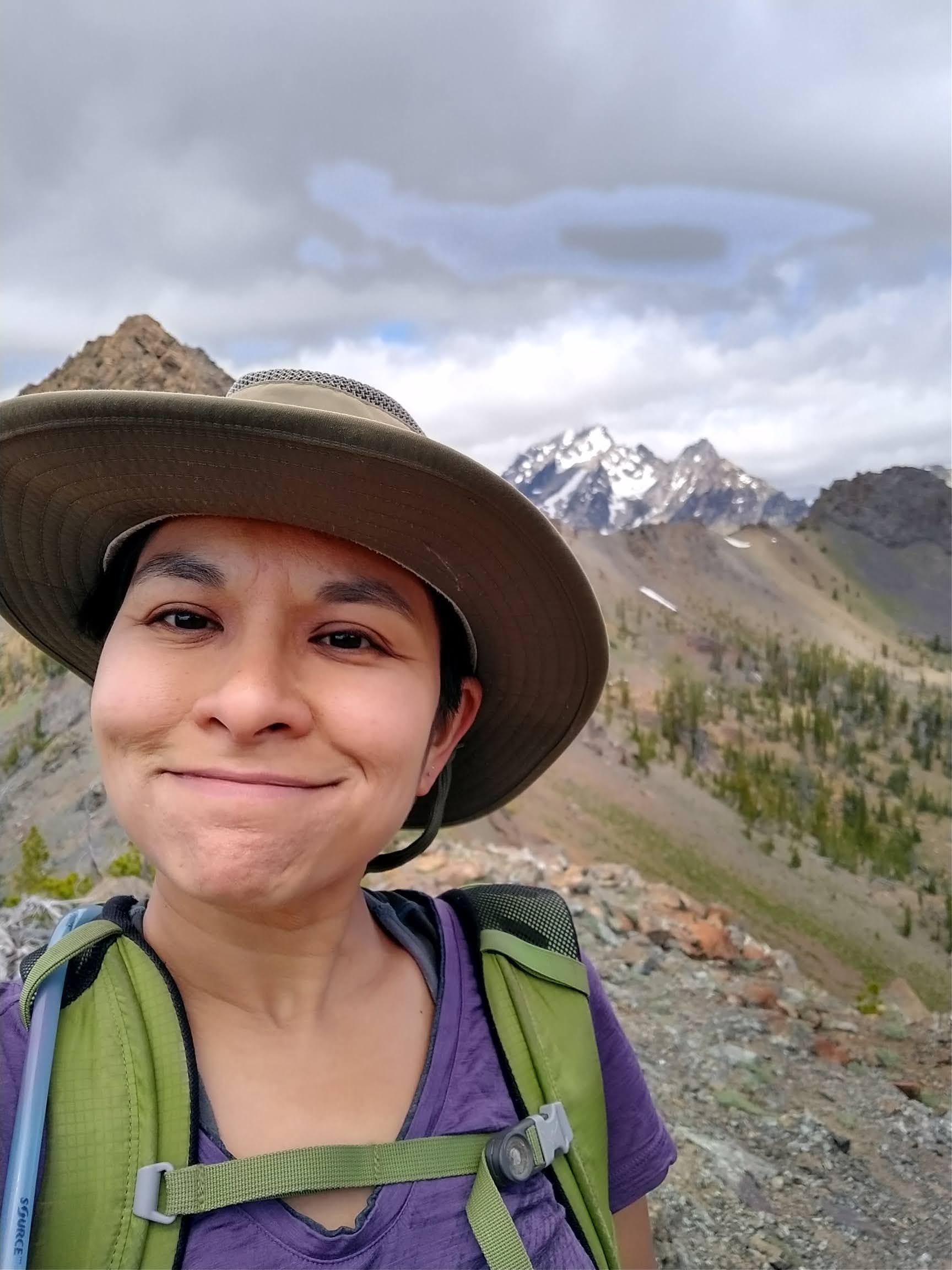
- Introduction: Hi, I'm Meera. I'm a 41-year-old Indian-Chinese woman from Singapore who's lived in different parts of the U.S. for over 20 years. Currently, I'm finishing up my Ph.D at the University of Washington. I'm an ecologist, and am fascinated by the relationships living things have with each other and how they shape communities of plants and animals. I live with my partner (a computer vision researcher), our wonderful and ridiculous cat, three Madagascar Hissing Cockroaches, and three Giant American Millipedes (which are not that gigantic).
- Favorite part of science: My favorite part of science is that it's much more important to ask good questions than it is to know lots of answers.
- Mentor/Program of importance in your life: I didn't know that I wanted to be a scientist until I was in my mid-30s. Since my undergraduate degree was in the humanities, I didn't have the basic academic background that I needed to apply to graduate programs in the sciences. I would not be where I am tosday if it weren't for the fact that I was able to take affordable community college classes close to my home.
- Favorite hobby/activity: So many! Currently, planting and caring for the native plants in my yard is an everyday way to observe some of the myriad interactions between species that inspire my science—in a few minutes I might see bumble bees and wasps pollinating flowers, spiders waiting for prey, or a slug feeding on vegetation.